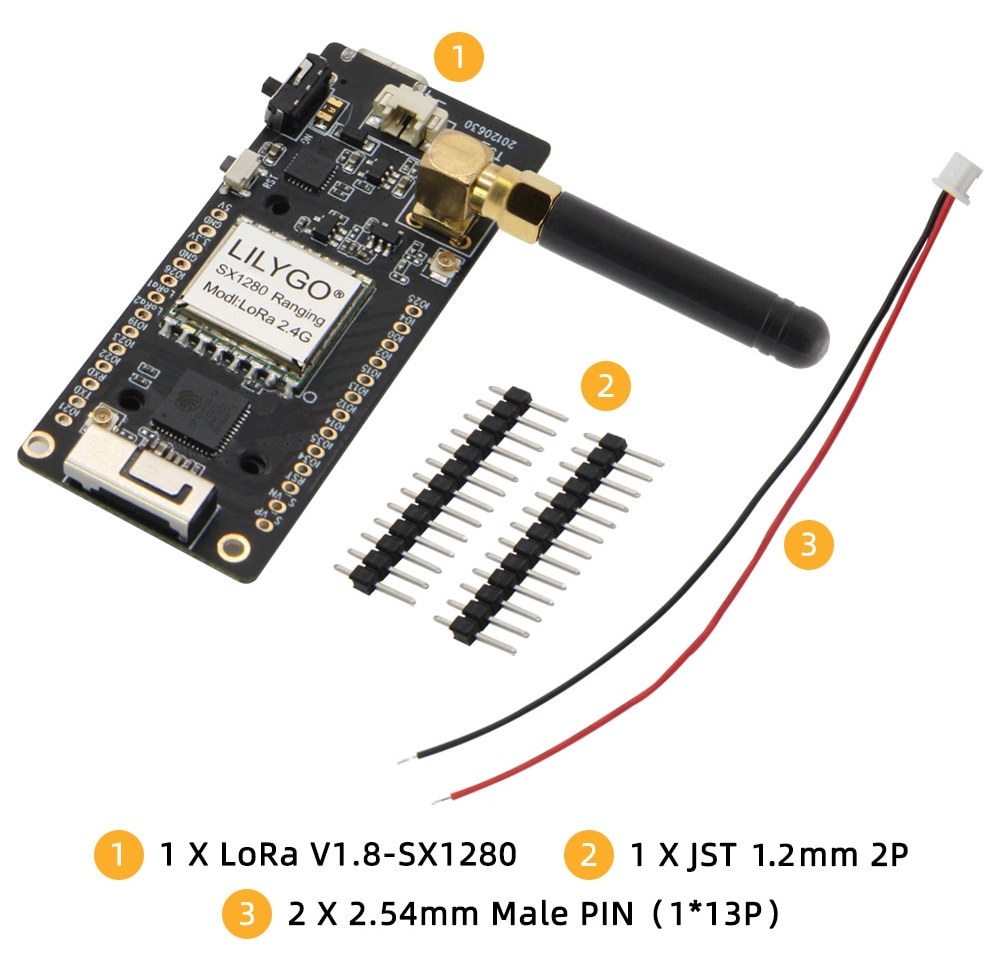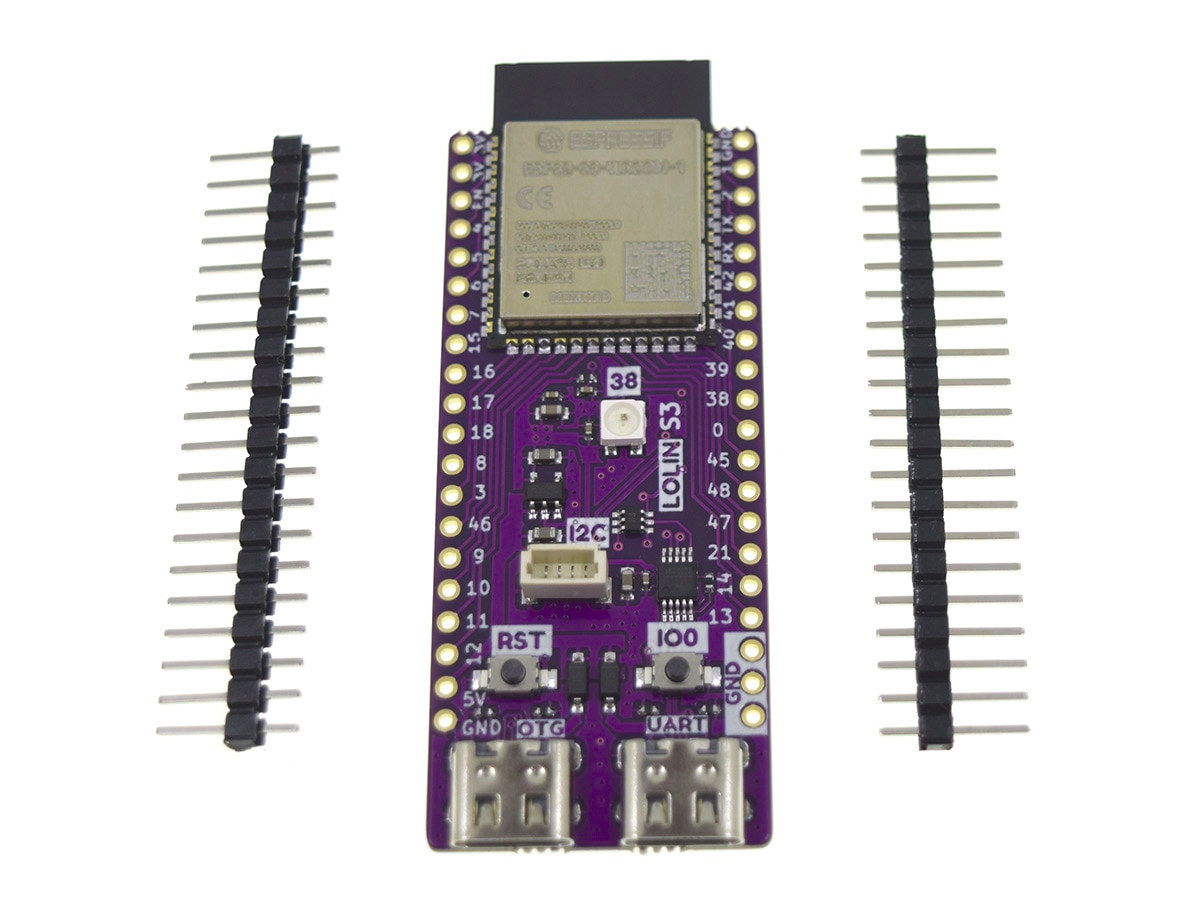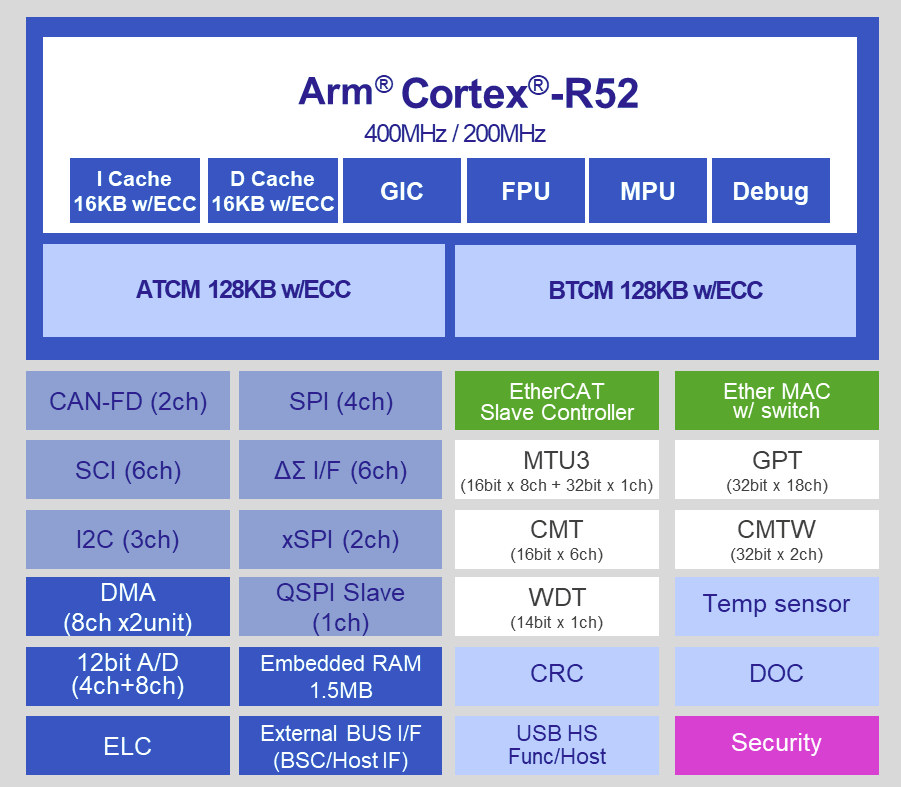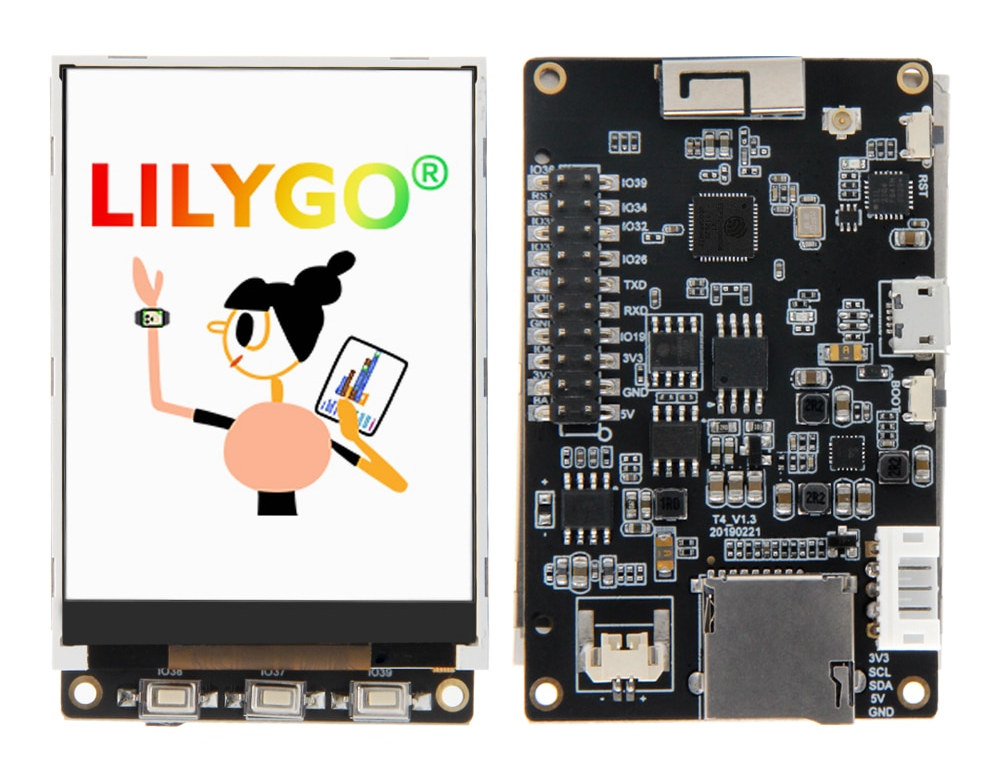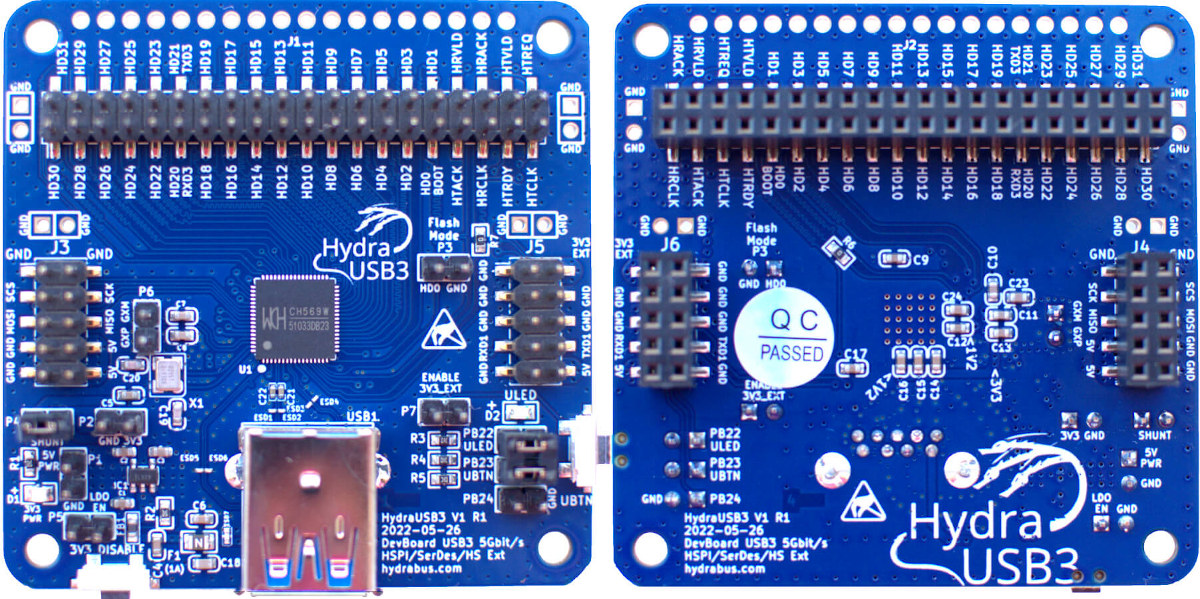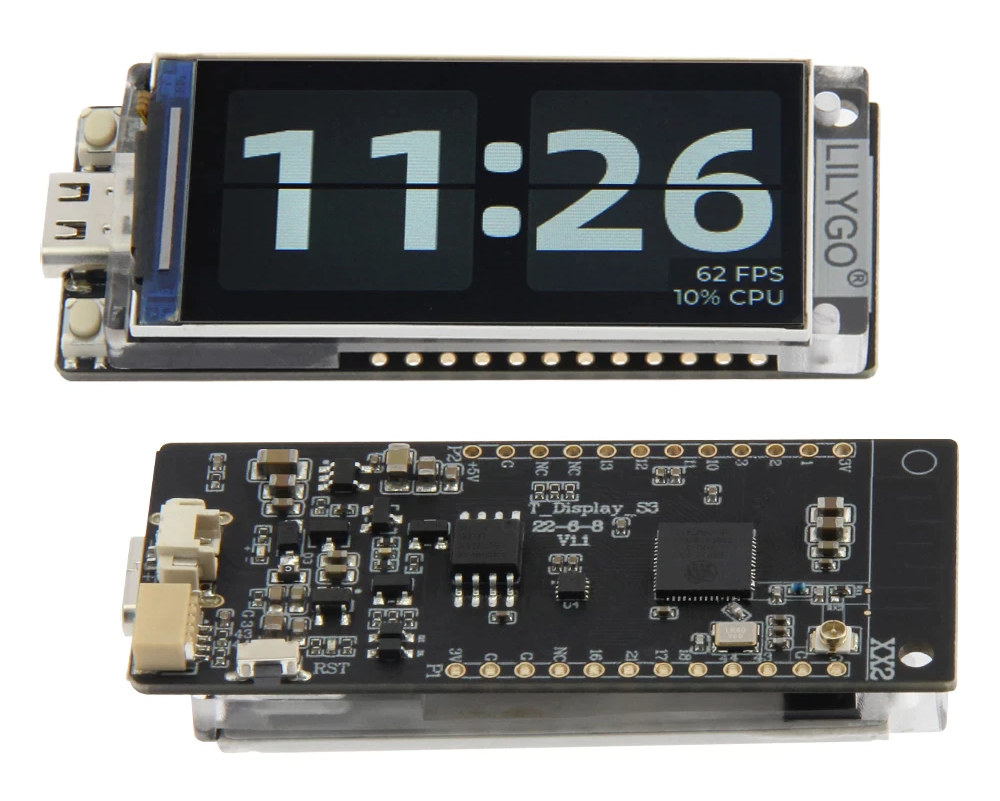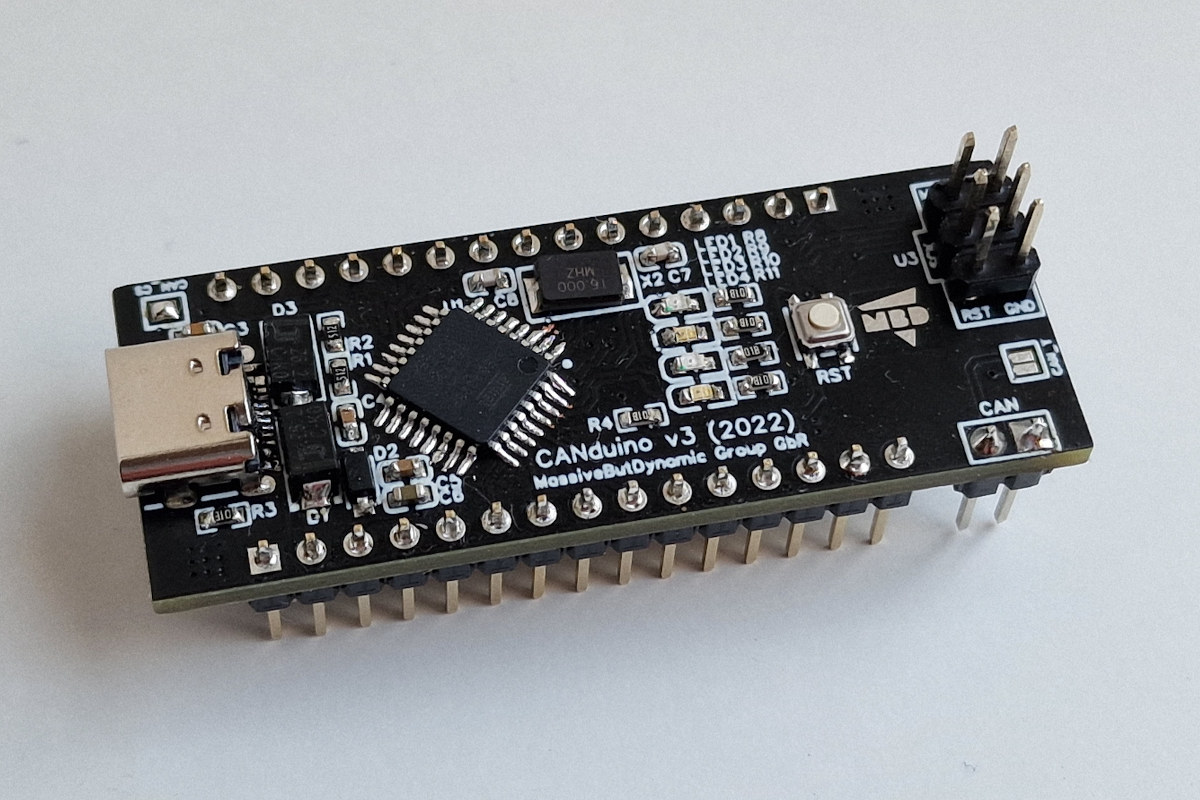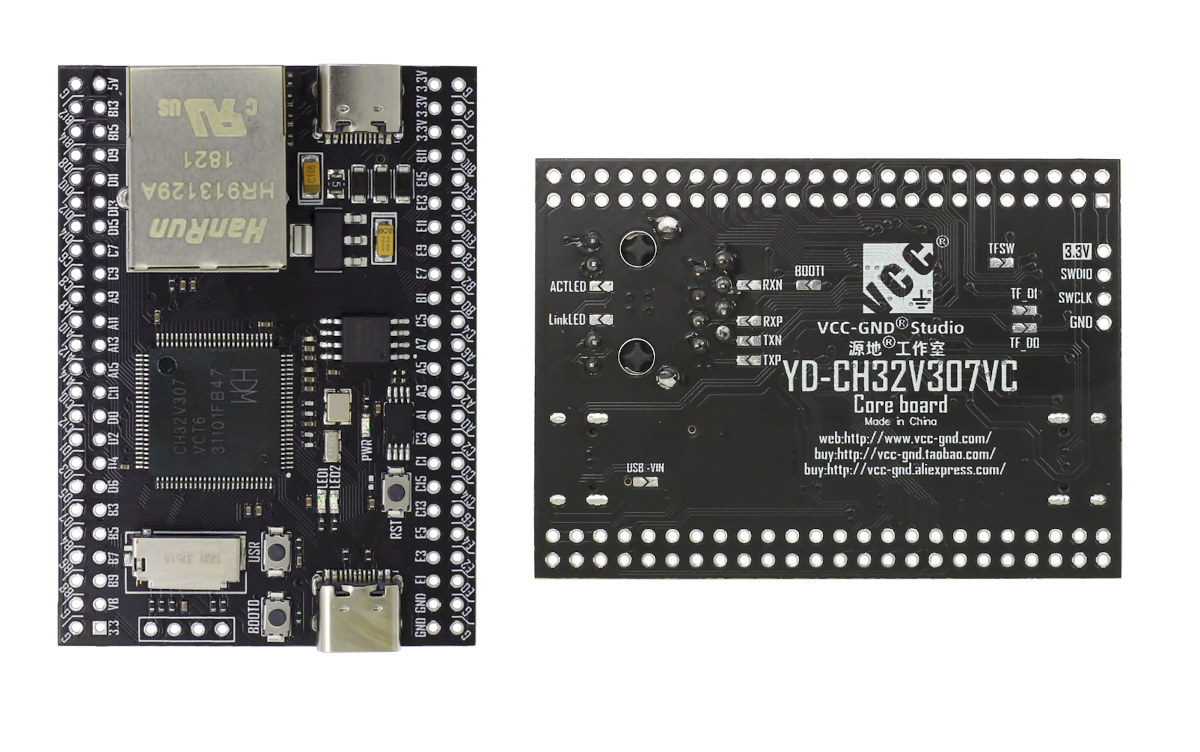We’ve seen plenty of ESP32 LoRa boards with the traditional 433 MHz, 868 MHz, or 915MHz frequencies, but I think LilyGO LoRa V1.8 (aka T3 V1.8) is the first ESP32 board that integrates a Semtech SX1280 transceiver for the 2.4GHz LoRa standard used for global coverage, notably maritime applications, and ranging. The ESP32 & SX1280 board also offers 26 pins for expansion, a microSD card for data storage, a 2-pin connector for batteries, a 0.96-inch OLED for information display, and comes with a 3D antenna and u.FL connector for WiFi and Bluetooth, and an SMA antenna for LoRa connectivity. LilyGO LoRa/T3 V1.8 specifications: SoC – Espressif ESP32 dual-core Xtensa LX6 processor with 2.4 GHz WiFi 4 and Bluetooth 4.2 Storage – 4MB SPI flash, microSD card slot Display – 0.96-inch OLED display with 128×64 resolution (SSD1306 I2C driver) Connectivity 802.11 b/g/n WiFi 4 up to 150 Mbps + Bluetooth 4.2 […]
$7 Lolin S3 ESP32-S3 board ships with MicroPython firmware
Lolin S3 is the first ESP32-S3 board from the company, but instead of using the more compact D1 mini form factor, the board features a longer design with two rows of 20 pins offering up to 31 GPIOs. Based on ESP32-S3-WROOM-1 module, the board features 16MB QSPI flash, 8MB SPRAM, two USB Type-C OTG and UART ports, a Lolin I2C port, an RGB LED, as well as Reset and user buttons. Lolin S3 specifications: Wireless module – ESP32-S3-WROOM-1 module with: Espressif Systems ESP32-S3 dual-core Tensilica LX7 @ up to 240 MHz with vector instructions for AI acceleration, 512KB RAM, 2.4 GHz WiFi 4 and Bluetooth 5.0 LE with support for long-range, up to 2Mbps data rate, mesh networking 16MB QSPI flash 8MB PSRAM PCB antenna USB – 2x USB Type-C ports, one OTG port, one UART port for programming and debugging Expansion 2x 20-pin headers with up to 31x GPIO, […]
Renesas RZ/N2L Arm Cortex-R52 MPU targets industrial Ethernet and TSN
Renesas RZ/N2L is an Arm Cortex-R52 microprocessor (MPU) family for industrial Ethernet communication equipped with an integrated TSN-compliant 3-port Gigabit Ethernet switch and an EtherCAT slave controller. The new processors also support other major industrial network communication protocols such as EtherCAT, PROFINET RT, EtherNet/IP, and OPC UA, as well as the new PROFINET IRT (Isochronous real-time) that allows deterministic communication with cycle times down to 31.25 µs and one µs of jitter. Renesas RZ/N2L key features and specifications: CPU – Arm Cortex-R52 @ up to 400MHz with 16KB I-cache with ECC, 16KB D-cache with ECC Memory Tightly coupled memory – 256KB with ECC Internal RAM – 1.5MB with ECC Octa/Quad SPI for HyperRAM, HyperFLASH, SRAM, SDRAM Networking Ethernet L2 switch: 3x external ports with Gigabit support TSN support (IEEE 802.1AS-2020, IEEE 802.1Qbv/802.3br, IEEE 802.1Qbu, etc.) Network redundancy support (DLR, PRP) EtherCAT slave controller Industrial Ethernet – EtherCAT, PROFINET RT/IRT, EtherNet/IP, […]
TTGO T4 ESP32 board features 2.4-inch color display, IP5306 battery charging IC
LilyGO has launched yet another ESP32 board with an integrated color display. The TTGO T4 offers a 2.2-inch or 2.4-inch color display, LiPo battery support, but in contrast to many other boards from the company, features a battery charging circuitry based on Injonic IP5306 “fully-integrated power bank system-on-chip with 2.1A charger, 2.4A discharger”. The WiFi and Bluetooth IoT board is also equipped with 4MB flash, a MicroSD card socket, 8MB PSRAM, a 20-pin GPIO header and a 5-pin I2C connector for expansion, and a few buttons for programming and user control. TTGO T4 v1.3 specifications: Wireless MCU – Espressif Systems ESP32 dual-core Tensilica LX6 microcontroller @ up to 240 MHz with 520 KB SRAM, wireless connectivity RAM – 8MB SPRAM (ISSI PN18S32) Storage – 4MB SPI NOR flash, MicroSD card slot Connectivity (ESP32) 2.4 GHz 802.11 b/g/n Wi-Fi 4 Bluetooth 4.2 BR/EDR and Bluetooth LE 3D antenna and u.FL connector […]
HydraUSB3 RISC-V MCU board combines USB 3.0 with HSPI and SerDes high-speed interfaces
Benjamin VERNOUX has launched the HydraUSB3 V1 board based on WCH CH569 RISC-V MCU as a developer platform to experiment with high-speed protocols like HSPI and SerDes through a USB 3.0 interface. It’s the third board from Benjamin we feature here, after the STM32-based HydraBUS and the HydraNFC v2 shield delivering up to 1600 mW for NFC charging and connectivity. The HydraUSB3 v1 is quite different since it does not involve NFC at all, and instead leverages the CH569’s high-speed interfaces including USB 3.0 (5 Gbps), HSPI (3.8Gbps), and SerDes (>1.2Gbps). HydraUSB3 V1 specifications: MCU – WCH CH569 32-bit RISC-V (RISC-V3A) RV32IMAC MCU @ 120MHz with 16KB 32-bit SRAM, 96KB configurable 128-bit SRAM, 448KB code flash, 32KB data flash USB – 1x USB 3.0 host/device port that supports the USB 3.0 SS built-in PHY (5Gbps) and USB 2.0 built-in PHY FS/LS/HS (480Mbps) High-speed I/Os High-Speed Parallel Interface (HSPI) up to […]
T-Display-S3 board offers ESP32-S3 WiSoC, 1.9-inch color LCD, and LiPo battery support
LilyGO T-Display-S3 is an ESP32-S3 WiFi and Bluetooth LE IoT development board with a 1.9-inch color LCD and support for LiPo batteries that follows the company’s T-QT ESP32-S3 board with a tiny 0.85-inch display introduced earlier this month. The new board offers the same layout as the previous T-Display RP2040 or ES32 boards, but the 1.14-inch display has been replaced with a larger 1.9-inch display that covers most of the board, and thanks to the ESP32-S3 microcontroller, gains proper Bluetooth 5.0 support, as well as vector instructions for AI acceleration. T-Display-S3 specifications: Wireless MCU – Espressif Systems ESP32-S3R8 dual-core Tensilica LX7 @ up to 240 MHz with vector instructions for AI acceleration, 512KB RAM, 8MB PSRAM, wireless connectivity Storage – 16MB flash Connectivity via ESP32-S3 2.4 GHz 802.11 b/g/n Wi-Fi 4 with 40 MHz bandwidth support Bluetooth Low Energy (BLE) 5.0 connectivity with long-range support, up to 2Mbps data rate. […]
CANDuino v3 – A Microchip ATmega168PA board with CAN bus, Arduino Nano form factor
CANduino v3 is the third revision of MassiveButDynamic’s CAN bus board with Arduino Nano form factor based on Microchip ATmega168PA 8-bit AVR microcontroller, Microchip MCP2515 CAN controller with an SPI interface, and Microchip MCP2551 CAN transceiver suitable for 12V and 24V systems. The CANDuino v3 board is now slightly narrower in order to give access to two rows on each side when installed on a breadboard, comes with a USB Type-C port to reduce the number of cables needed, and the CAN bus function can be deactivated via a jumper in order to use the CANduino as a normal Arduino Nano. CANDuino v3 specifications: MCU – Microchip ATmega168PA 8-bit AVR microcontroller @ up to 16 MHz with 16KB flash, 512 bytes EEPROM, 1 KB SRAM CAN Bus CAN L/H header and CAN bus termination Microchip MCP2515 CAN controller connected to the AVR microcontroller over SPI. Supports CAN V2.0B at 1 […]
YD-CH32V307VCT6 RISC-V MCU board comes with Ethernet and plenty of I/Os
At the beginning of the year, we wrote about WCH CH32V307 RISC-V microcontroller and a development board with 8 UART ports controlled over Ethernet. I’ve now been informed of a similar, but much more compact by VCC-GND Studio named “YD-CH32V307VCT6”. Besides the 144 MHz RISC-V microcontroller, the board features a 10Mbps Ethernet port, two USB Type-C ports, SPI flash, EEPROM, a microSD card socket, and four rows of 24 pins each for a total of 96 pins exposing all pins out of the LQFP100 package. YD-CH32V307VCT6 board specifications: MCU – WCH CH32V307VCT6 32-bit RISC-V microcontroller @ 144 MHz with 256K Flash, 64K SRAM Storage – 32Mbit SPI NOR flash (W25Q32), 64kbit EEPROM (24C64), MicroSD card slot Networking – 10 Mbps Ethernet USB – 1x USB 2.0 Type-C port (High Speed: 480 Mbps), 1x USB 2.0 Type-C port (Full Speed: 12 Mbps) Expansion – 2x 48-pin headers with 2 x 12-bit […]


